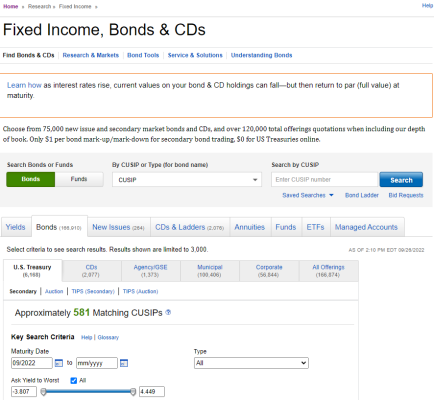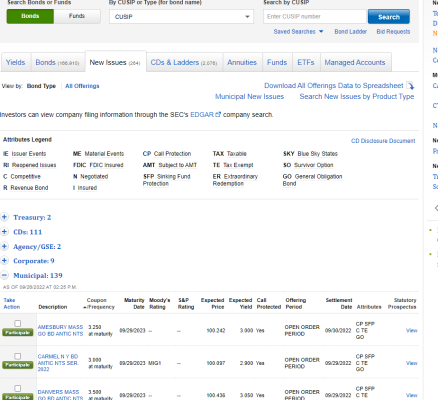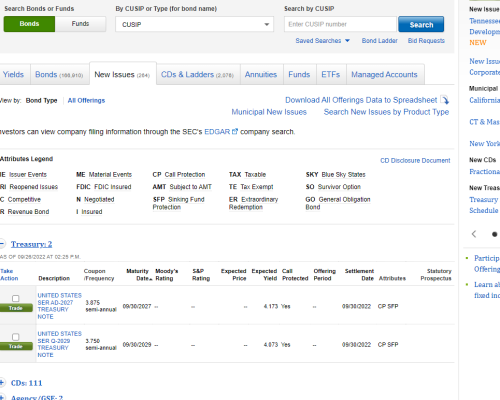Who or what determined this 3.981 rate? Is it dependent on a robust or weak demand? Is there a select group of employees at the Treasury department who decide? We all put our orders in not knowing exactly what return we will receive. Someone or something is assigning this rate to this and all other auctions. Would love to know how this works.
I believe I had pointers earlier in this thread.
To summarize:
- The auction gets bids from competitive bidders.
- We mere peons who have $10M or less get on the coattails of the bidders, and get the best bid they come up with.
- Competitive bidders are typically institutions, buying millions.
- Bids are generated by algorithm or human based on the dynamic market.
- Supply and demand are part of it, but the result is also a product of the greater money and bond market.
- Real people's bonus or salary are determined by the success of the bids submitted by the institutions.
- Too low, and the boss sees your spread is too large from auction price. That's a ding on your skills.
- Too high, and you FAIL to buy any product (not good for your institution). You'll really get dinged.
- The high accepted bid is based on the amount of product to be sold. Treasury stacks up the bids and sells the offering. The bid on top wins.
- In the end, we all get the same winning bid, even the low bidders... but again, remember, someone out there is graded on their bidding prowess, or their algorithmic computer skills
From the Treasury directly. How treasury bids work:
https://www.treasurydirect.gov/instit/auctfund/work/work.htm
There are no nerds in the Treasury Department having a meeting. This is a real market with real money trying to get the best rate from the government based on how much they can squeeze it. The bids use much data as input, including the secondary market and other money markets. When the auction finalizes, the Treasury gives us information: high winning bid, low bid, and how much of the high bid was accepted. Everything below the high winning bid also wins at the same rate. Once the auction settles, it in turn has ripples into the secondary market. They work with each other.
You may ask: why not just buy secondary, even institutions? Well, this is DIRECT, no middle man, no market maker. It is the best deal for the big boys. We get to jump on their coattails. Many of these institutions are market makers and then resell immediately on the market and make that spread.




